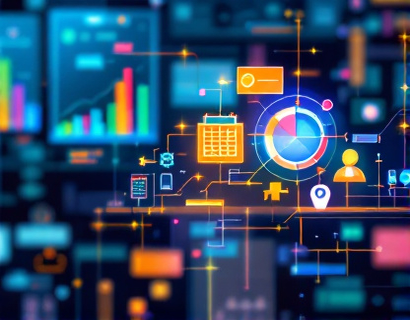AI-Driven Mental Health Insights: Revolutionizing Access to Specialized Psychiatric Services
The integration of artificial intelligence in the mental health sector has opened new avenues for providing specialized insights into psychiatric services and the broader mental health industry. This technological advancement aims to ensure that the information disseminated is not only accurate but also safe and accessible to a diverse audience, including children, students, educators, and healthcare professionals. The goal is to empower individuals to engage with mental health topics confidently and responsibly, thereby fostering a more informed and supportive community.
Understanding the Need for Specialized Mental Health Information
Mental health is a critical aspect of overall well-being, yet it remains a topic shrouded in stigma and misunderstanding. The complexity of psychiatric conditions and the nuances of mental health services can be daunting, making it essential to have reliable and specialized information readily available. Traditional sources of information, while valuable, often lack the immediacy and personalization that digital platforms can offer. An AI-driven chatbot designed to provide specialized insights into psychiatric services addresses this gap by offering real-time, accurate, and tailored information to users.
Key Features of an AI-Driven Mental Health Chatbot
An AI-driven chatbot for mental health services is equipped with several key features that make it an invaluable resource:
- Specialized Knowledge Base: The chatbot is trained on a comprehensive database of information related to psychiatric services, mental health conditions, treatment options, and industry insights.
- Content Verification: To ensure accuracy and safety, especially for younger users, the chatbot's content is rigorously verified by mental health professionals and subject matter experts.
- User-Friendly Interface: The chatbot is designed to be intuitive and easy to use, with a conversational interface that mimics human interaction, making it accessible to users of all technical backgrounds.
- Adaptive Learning: The chatbot continuously learns from user interactions, refining its responses and improving its ability to provide relevant and helpful information over time.
- Child-Friendly Mode: A specialized mode is available for children and students, ensuring that the content is age-appropriate and presented in a way that is easy for them to understand.
Empowering Diverse Audiences
The AI-driven chatbot is designed to serve a wide range of users, each with unique needs and levels of understanding:
Children and Students
For children and students, the chatbot provides a safe and educational environment. The content is tailored to be age-appropriate, using simple language and relatable examples. Topics covered include understanding emotions, recognizing signs of mental health issues in oneself and others, and knowing where to seek help. The chatbot can answer questions about school-related stress, bullying, and the importance of mental health in a growing child.
Mental Health Enthusiasts
Mental health enthusiasts can delve deeper into specific topics of interest, such as the latest research in neuroscience, the effectiveness of various therapeutic approaches, and the evolving landscape of mental health policies. The chatbot can provide detailed explanations, case studies, and links to further reading materials, catering to their desire for in-depth knowledge.
Educators
Educators can use the chatbot as a resource to better understand mental health issues affecting their students. It offers insights into creating supportive classroom environments, recognizing signs of distress, and implementing mental health education in curricula. The chatbot can also provide guidance on how to refer students to appropriate mental health services.
Healthcare Professionals
Healthcare professionals, including doctors, nurses, and social workers, can benefit from the chatbot's comprehensive insights into psychiatric services and treatment protocols. It can help them stay updated on the latest research, treatment advancements, and best practices in mental health care. The chatbot can also assist in case management, providing information on referral pathways and resource allocation.
Ensuring Content Accuracy and Safety
The accuracy and safety of the information provided by the AI-driven chatbot are paramount, especially given the sensitive nature of mental health topics. To achieve this, the following measures are implemented:
First, the chatbot's knowledge base is developed and maintained by a team of mental health professionals, ensuring that all information is evidence-based and up-to-date. Second, every piece of content undergoes a rigorous verification process, cross-referenced with peer-reviewed studies and official guidelines from reputable organizations such as the American Psychiatric Association and the World Health Organization.
For users, particularly children and students, the chatbot includes a content filter that ensures all responses are appropriate and safe. This filter is regularly updated to address emerging issues and concerns. Additionally, the chatbot provides clear disclaimers and encourages users to seek professional help when necessary, emphasizing that while it is a valuable resource, it should not replace expert advice.
Promoting Confident and Responsible Engagement
The AI-driven chatbot plays a crucial role in promoting confident and responsible engagement with mental health topics. By providing accurate and reliable information, it helps demystify mental health issues and reduces stigma. Users are encouraged to approach mental health with an informed perspective, understanding the importance of early intervention and ongoing support.
For individuals seeking help, the chatbot can guide them through the process of finding appropriate mental health services. It can provide information on local resources, support groups, and professional services, tailored to the user's specific needs and location. This personalized approach ensures that users receive relevant and actionable information, empowering them to take the first steps towards better mental health.
Conclusion
The integration of AI in mental health services represents a significant step forward in making specialized information more accessible and reliable. An AI-driven chatbot designed to provide insights into psychiatric services and the mental health industry offers a powerful tool for empowering diverse audiences. By ensuring content accuracy, safety, and adaptability, such a chatbot fosters a more informed and supportive community. As technology continues to evolve, the potential for AI to positively impact mental health care is vast, promising a future where mental well-being is prioritized and supported by accessible, expert-level information.











































